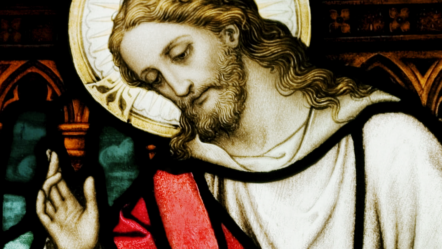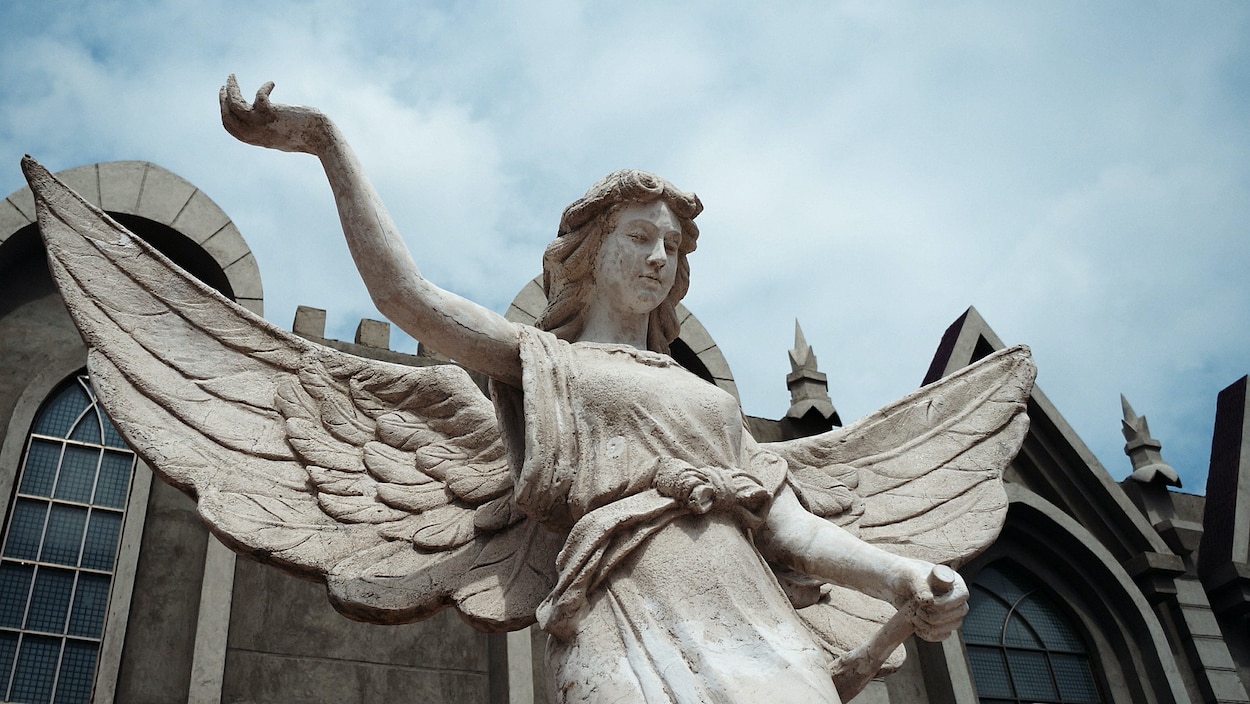A prophet like me (Moses) will the Lord, your God, raise up for you from among your own kin; to him you shall listen. (Deuteronomy 18:18)
God has kept this promise by sending us THE Prophet, his only begotten Son Jesus Christ in human flesh. This event must become a mighty reason for rejoicing and celebrating. If God were to speak to us without the “screen” of his human flesh, we would die of fright.
‘Let us not again hear the voice of the LORD, our God, nor see this great fire anymore, lest we die.’ (Deuteronomy 18:16)
The gospel passage (Mark 1:21-28) for the Fourth Sunday in Ordinary Time describes the utter surprise in those who were the first ones to witness God made flesh addressing them, transforming them, and reshaping their lives. While waiting for this promise to be fulfilled, for centuries, people had been fed a steady diet of trite, boring teachings from the scribes and scholars of the law, until, on a Sabbath, a carpenter from Nazareth burst into their Synagogue’s service—and everything changed.
What followed filled them with sheer astonishment.
There was the surprise that an artisan with only a basic education would outshine and confound the local teachers of the law to the extent of embarrassing them with the newness and the solidity of what was coming out of his mouth. What he was teaching was new, ground-breaking, revolutionary, but also totally compelling, obviously genuine, irrefutable, irresistible.
There was the additional surprise that his teaching was followed by actions that no one else would even dare to dream possible: he cured someone on the Sabbath! Hence, they wondered if there was more than a touch of madness in this blue-collar worker from the hick village of Nazareth, unless, unless he was THE Prophet God had promised to Moses, way back then.
Could it be? This is what this carpenter said about the Sabbath: “The Sabbath was made for man, not man for the Sabbath. (Mark 2:27) Even the most sacred laws are for people’s benefit and not the other way around.
Finally, there was the ultimate surprise: Jesus, the carpenter from Nazareth, first confronted head-on the dreaded evil spirits that were plaguing their lives; drove them out of a poor man, right there, before their eyes, and easily resisted their attempts at controlling him by revealing his divine identity.
Now, the fact that this gospel passage is read to us, today, is not a simple recollection of what took place some 2000 years ago at Capernaum, but also an invitation to react with utter astonishment and surprise before what Jesus, God among us in human flesh, wishes to do to us, to our minds, to our hearts, to our lives, to our future—on this very day.
Our ancestors begged Yahweh God to spare them by not manifesting himself in all his majesty and glory.
Reacting to how shocked and surprised the people in the synagogue of Capernaum and the demons themselves were, we are forced to conclude that the “screen” of human flesh still cannot shield us from some of God’s glory, power, authority, and wisdom shining through.
Following every Eucharistic Celebration, we should leave with a brand-new outlook on what God the Father intends to do to us, individually and collectively, through the flesh of his only Son Jesus, the Christ. Through every encounter with Jesus, the Father wants to reclaim each one of us for himself in a way that, although irresistible, is not causing us to die of fright but generates in us incredible joy.
Through Jesus, the Father reclaims us for himself in ways that are effective, incredibly powerful, yet gentle and soothing at the same time. If the forces of evil have any hold on us, Jesus wants to cast them far away lest they gnaw at our relationships with the people in our life. If Jesus notices a high degree of anxiety which spoils our days, keeps us awake at night, and makes us edgy, he wants to bring us the comfort of his Holy Spirit. If there is paralysis caused by a trauma in our past which frustrates our sincerest efforts and makes us feel so very inadequate, he offers us all the divine energy to become productive again. If our love for him has become lukewarm, flattening nearly everything in our life, the Lord can rekindle it into a lively flame. And so on.
This ardently desired reshaping of our entire life is done by the Father through the physicality of Jesus’ flesh touching us in the power of his words of life and the Sacraments. Hence, fully aware of what Jesus can do to us, we shall not be the last sources of his fame. We must show clear, unequivocable signs that he has changed our life and has filled us with uncontrollable joy so that countless others, too, may be transformed by his love.







